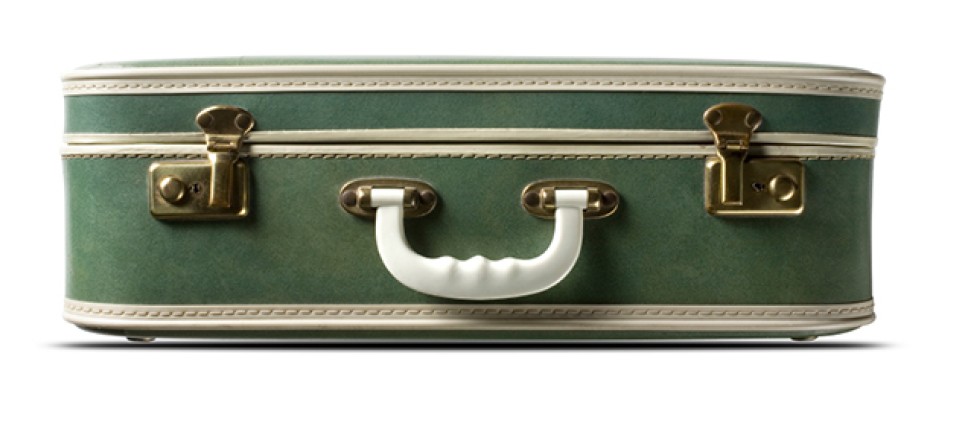Reflections of a Pack Rat

The root of suffering is attachment.
—The Buddha
I’ve moved 10 times in the past 14 years, from various hotels in Asia to apartments in New York City to Kripalu and nearby towns in the Berkshires. I’m about to move again, to another small Massachusetts town, and there I plan to stay. I should be an expert in consolidating, tossing, packing, and labeling. But, each time, the thought of assessing my belongings causes some degree of panic.
“Yoga is achieved through non-attachment,” according to Patanjali’s Yoga Sutras. But I learned the word “memento” early in life, long before I learned to spell it. I still save birthday cards, brochures, and magazines I hope to read. I don’t necessarily want to keep these items, but an obligatory strain causes me to stack them in boxes and bury them in closet space, only to uncover them with dread when moving day approaches.
I prefer the term pack rat (quirky) to hoarder (scary), so I turned to “Field Guide to the Pack Rat: Closet Cases,” an article in Psychology Today. Elizabeth Svoboda writes, “We see the objects in our home as symbols of safety and comfort.” Such objects “contribute to [our] sense of identity.”
My neighbor kept a tire from his vandalized BMW in his cramped Manhattan kitchen for two years, meaning to sell it on E-bay. To him, this made perfect sense. It was one last reminder of the possession that had been trashed, some semblance of control.
Ernest Hemingway also hoarded. A trove of junk (some 2,000 items) from his home in Havana, Cuba, was donated last year to the John F. Kennedy Library in Boston. He kept every telegram, every bullfight ticket. Perhaps his famously spare writing style was the antidote to his cluttered life.
It’s nice to have something in common with Hemingway. I, too, keep lots of paper close by, along with unread library books—16 at the moment. Because they’re near, I can claim to have a reading and writing life.
My father, a former politician, kept stuff, too—whole trunks from his days as a Congressman. (Pack-ratting may have some genetic basis, according to Elizabeth Svoboda.) When I lived overseas, in the days before online news, Dad sent weekly clippings from American newspapers with highlighted portions for easy skimming. I kept them; they were from my father, after all. (As Elizabeth asks, "How do you separate the person from the stuff?")
My great-aunt, 91 and fond of Costco, recently called to say, “Guess who’s going through my crap when I’m gone?” I told her to stop talking about it, but she has a point: One closet is crammed with paper products. Another contains seltzer and pretzels in 24-packs.
Talk about incentive: Do I want someone to have to go through my closets? How embarrassing and unsexy to be hanging onto Triple-A newsletters from the 1990s. (At least pretzels can be consumed.) This is not a way to engender happy memories of the departed.
To counter “memento,” I learned another word, this one in Sanskrit, from yoga philosophy: vairagya, or renunciation. I think of the thrilling moment in What Not to Wear, a makeover show, when hosts Stacy London and Clinton Kelly chuck the contestant’s old wardrobe into an oversized garbage pail. How I crave an imposed catharsis like this. Left to my own devices, I waffle.
During my year as a volunteer at Kripalu, I lived in a dorm and had little space for possessions, just a few shelves opposite my bunk bed. I had fair warning about this, so I rented storage space and arrived with one suitcase. This forced detachment opened up all sorts of room in my brain for ideas and contemplations. I started writing again and remembered the appeal of the blank page—the best incentive of all.
Then someone put a cardboard box in our dorm called the “Free Bin.” It was too tempting. (Leg warmers! Agave syrup!) I began to hoard those unwanted objects. By the end of the year, I had again accumulated stuff.
It helps to note that we don’t really possess anything, of course—it all gets recycled. I live near an excellent thrift shop, where I’ve found lawn chairs and Lawrence Welk on vinyl. Sometimes I bring the records back, having listened to them once. If I could only think of all belongings in this way: Everything ends up at the transfer station. To detach is to realize that we exist in a collective; many hands will sort my paper, ultimately. What a comforting notion for a pack rat.
© Kripalu Center for Yoga & Health. All rights reserved. To request permission to reprint, please e-mail editor@kripalu.org.
Lara Tupper, MFA, is the author of two novels, Off Island and A Thousand and One Nights, and Amphibians, a linked short story collection forthcoming in 2021.
Full Bio and Programs